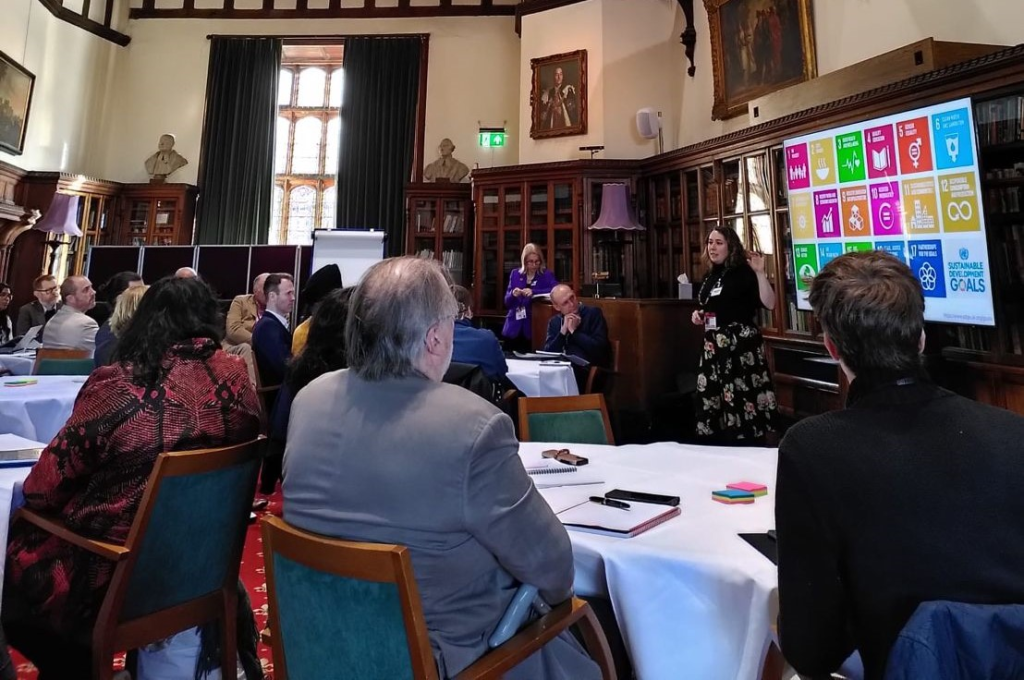The climate crisis poses unprecedented risk to human livelihoods, and in response needs solutions at every level, particularly in the education sector. As employers express the need for green skills, and students express their desire for preserving their futures, the university and college sector in the UK is evolving to provide more sustainability-related education. However, the change has been slow and uses an opt-in approach, where climate education is treated as an add-on to existing courses. However, the climate emergency is not something we can opt out of.
In February 2024, senior figures from Professional, Statutory and Regulatory Bodies (PSRBs), employer representatives, youth voices and education sector bodies gathered at St George’s House, Windsor Castle, to explore the case for a reformed curriculum which embeds sustainability. Organised by Students Organising for Sustainability UK (SOS-UK) and EAUC (The Alliance for Sustainability Leadership in Education) the conference platformed student voices and highlighted the need for co-production of new systems of learning that prioritise sustainability at every stage. Additionally, a gap was identified where there is no regulatory body for economics education, so sustainability is not necessarily taught to future investors and policy makers.
Students who attended the conference have taken on the role of PSRB influencers as part of SOS-UK, to follow through on the discussion and ensure real action is taken. A primary advocacy tool has been tracking changes needed to the Quality Assurance Agency’s (QAA) Subject Benchmark Statements. These set a bar for the minimum information and skills a university course must cover. While QAA has begun to incorporate sustainability as a cross-cutting theme in these reports, it is crucial that students are getting the opportunity to directly review their curriculum, as they can provide unique insight into what may be lacking. Although student review is a part of the process of drawing up the report, one student for each report of such massive scale and importance is limiting. The hope is to incorporate student voices as a holistic and continual part of curriculum monitoring, naturally leading to sustainability as a core part of their education.
As one of the PSRB influencers, I am working in my own niche to identify the viability of setting up a regulatory body for economics, a discipline famously stuck in the past in regards to sustainability and diversity of thought. It is exciting to be contributing to a project that has the capacity for a big ripple effect, because education policy eventually determines how all work is done. There is consensus amongst employers, regulators, university representatives, and students that sustainability must be mainstreamed and at the forefront of teaching and learning so that higher education is fit for the future. This shift is only possible with a concerted effort from everyone, looking out for the long-term interests of people and planet.
